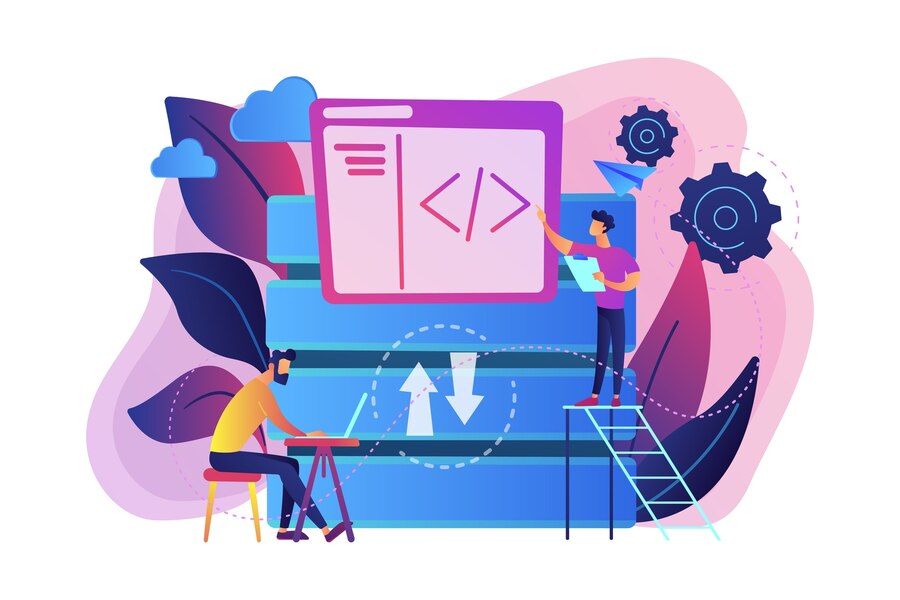Germany has emerged as a leader in HealthTech software and app development, thanks to its robust infrastructure, advanced technologies, and strict regulatory standards.
With a focus on innovation, Germany is revolutionizing healthcare through digital solutions, making it a prime destination for HealthTech startups and established enterprises alike.
Germany’s Thriving HealthTech Ecosystem
Innovation-Driven Environment
Germany’s HealthTech sector thrives on continuous innovation. The country boasts top research facilities and partnerships with universities that drive advancements in artificial intelligence (AI), machine learning (ML), and wearable technologies.
Government Support and Policies
The German government actively supports HealthTech through programs like the Digital Health Act, which encourages digitization in healthcare.
Policies also promote telemedicine and remote patient monitoring, creating growth opportunities for developers.
Strong Regulatory Framework for HealthTech Solutions
Compliance with GDPR and MDR
Germany’s HealthTech solutions adhere to the General Data Protection Regulation (GDPR) and the Medical Device Regulation (MDR).
These standards ensure data privacy and the safety of medical devices, building user trust in digital health applications.
Data Security and Patient Privacy Standards
Germany’s strong emphasis on data security enables a mobile app development company in Germany to create secure and fully compliant applications with ease.
Encrypted databases and secure cloud storage options help protect sensitive patient information.
Access to Cutting-Edge Technologies
Artificial Intelligence and Machine Learning
AI and ML are transforming HealthTech by enabling predictive analytics, diagnostics, and personalized treatments. German startups leverage these technologies to deliver efficient healthcare solutions.
Cloud Computing and IoT Integration
Cloud infrastructure and IoT devices allow seamless communication between medical systems, ensuring data interoperability and faster decision-making.
Highly Skilled Workforce
Germany’s Tech Talent Pool
With a strong emphasis on STEM education, Germany produces top software developers and engineers who specialize in healthcare technologies.
Collaboration with Research Institutions
Close ties between HealthTech companies and research institutions enable the rapid development of advanced solutions, ensuring Germany stays ahead of global trends.
Robust Healthcare Infrastructure
Digital Transformation in Hospitals
Germany’s hospitals are adopting digital tools for patient management, diagnostics, and treatment planning, creating demand for innovative HealthTech solutions.
Integration with Electronic Health Records (EHRs)
HealthTech software integrates seamlessly with EHR systems, enabling data sharing and improving patient care coordination.
Rising Demand for Mobile Health (mHealth) Apps
Fitness and Wellness Tracking
Apps for fitness tracking, mental health, and diet management are becoming increasingly popular among consumers seeking to improve their well-being.
Telemedicine and Remote Monitoring
Telemedicine apps enable virtual consultations, while wearable devices track vital signs, making remote monitoring more accessible and efficient.
Access to Investment and Funding Opportunities
Venture Capital and Startup Accelerators
Germany’s vibrant startup ecosystem provides funding opportunities through venture capital firms and accelerators that specialize in HealthTech solutions.
Public Grants and EU Funding Programs
Startups benefit from government grants and EU programs that support research and development in the healthcare sector.
Success Stories of HealthTech Startups in Germany
Innovative Case Studies
Startups like Ada Health and Kaia Health have achieved global recognition for their AI-powered diagnostic and therapy solutions.
Growth of Local and Global Companies
Germany’s focus on innovation has attracted global HealthTech giants, further strengthening the ecosystem.
Challenges in HealthTech Software Development
Regulatory Compliance Barriers
Navigating complex regulations, including GDPR and MDR, poses challenges for developers, requiring expert guidance and resources.
Data Security and Interoperability
Ensuring secure data storage while maintaining seamless interoperability across platforms is crucial for success in HealthTech, making reliable software development services in Germany an essential component for achieving these goals.
Future Trends in Germany’s HealthTech Sector
AI-Powered Diagnostics
AI algorithms will continue to advance diagnostics, enabling faster and more accurate disease detection.
Blockchain in Healthcare
Blockchain technology is gaining traction for secure data sharing and improving transparency in healthcare transactions.
Conclusion
Germany’s leadership in HealthTech software and app development stems from its innovation-friendly environment, advanced technologies, and strict regulatory framework.
With growing demand for mobile health apps and telemedicine solutions, the country remains at the forefront of HealthTech transformation.
Whether you’re a startup or an established enterprise, Germany offers the tools and resources needed to drive healthcare innovation.
FAQs
1. Why is Germany considered a leader in HealthTech?
Germany combines advanced technology, government support, and strict regulatory compliance, making it an ideal location for HealthTech development.
2. What technologies are shaping HealthTech in Germany?
AI, IoT, blockchain, and cloud computing are driving innovation in Germany’s HealthTech sector.
3. How does GDPR impact HealthTech development?
GDPR ensures data security and privacy, making compliance essential for software developers to build trust with users.
4. What funding options are available for HealthTech startups in Germany?
Startups can access venture capital, government grants, and EU funding programs to scale their businesses.
5. What are the challenges HealthTech companies face in Germany?
Compliance with regulations, data security, and interoperability are the key challenges startups need to address.




